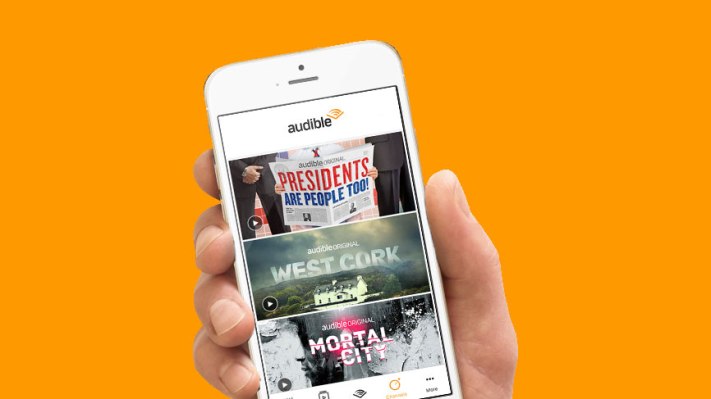Though lots of moving parts have to be corralled together in order to found, expand and manage a business as large as Audible.com, founder Donald Katz would argue that the key component to his company’s success is this: People love a good story and they love it even more when it’s delivered conversationally.
The value of storytelling has been well-covered, and Katz isn’t far off when he describes being told a story as a “primal pleasure” — particularly when performance is brought into the picture. It’s this line of thinking that led Katz first to pen his critically acclaimed novel, Home Fires, and later to found Audible. This same notion is what’s led Katz to believe that he should consider what his business “means” — to stakeholders, to writers, to employees and to the community at large— ”beyond dollars and cents.”
With respect to the greater narrative of his life, it makes sense that Katz would come to this conclusion. Long before he built the largest audiobook business in the United States, and more than four decades before he founded a startup accelerator in Newark Venture Partners, Katz was an eager student of literature.
Katz spent four years earning undergraduate degrees in English and political science at NYU in the early 1970s. It was then and there that Katz claims the intellectual “birth” of what would one day become Audible took place — thanks, in large part, to a writer whose work and teachings profoundly influenced Katz’s own understanding of literature as something more than words on a page.
That writer was Ralph Ellison, author of one of America’s most widely celebrated novels, Invisible Man, which details the unique experiences of an African-American man living in New York City during the early 1900s.
The same year that Katz enrolled as an English student, Ellison was named the Albert Schweitzer Professor of Humanities at NYU. This coincidence of timing would bring the two together and spark Katz’s interest in literature not only as text, but also as a meaningful performance of the human condition.
In a world that’s primed so many for distracted multitasking, the constant stream of conversationally packaged information offered by audiobooks and podcasts may seem to offer a moment’s respite.
“What I got to do with [Ellison] was be his tutee for a year, and take a course with him called ‘American Vernacular,’ where I understood that American literature at its best was a function of how we spoke, how we told stories around campfires — how we bragged, consoled, lamented and felt,” Katz explains. “I studied literature with Ralph as much as I read his work and talked about writing… Audible is testament, in many ways, to what I learned from him.”
As Katz himself says, adopting Ellison’s worldview that ideas are best conveyed through vernacular speech is likely the element that underpins much of Audible’s success. That, coupled with the increasing ubiquity of mobile devices and the headphones that accompany them make audio content an increasingly compelling option for consumers navigating a world rife with emails, blog posts, text messages and articles elbowing one another out of the way to be top-of-mind. In a world that’s primed so many for distracted multitasking, the constant stream of conversationally packaged information offered by audiobooks and podcasts may seem to offer a moment’s respite.
As for what it all means?
In so much of popular literature, stories follow what is called chiastic structure, or ring composition. In this narrative structure, stories begin, end and signal the future much in the same way. Maybe that’s why in Katz’s latest gig at Newark Venture Partners, he brings in thinkers, makers and founders from the greater New York City and New Jersey areas to transform the spark of their ideas into distinctive companies that do meaningful work.
